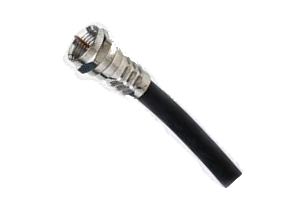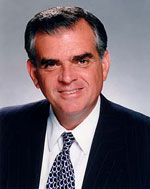 On April 15, 2006, Peoria’s 20-year cable franchise agreement with Insight Communications expired. As of today, we still have no cable franchise agreement, but City Attorney Randy Ray is hopeful that we will soon. In an e-mail I received in response to my question on how negotiations were going, he said this:
On April 15, 2006, Peoria’s 20-year cable franchise agreement with Insight Communications expired. As of today, we still have no cable franchise agreement, but City Attorney Randy Ray is hopeful that we will soon. In an e-mail I received in response to my question on how negotiations were going, he said this:
Our attorney is working on what I hope is a final version [of the proposed new franchise agreement]. We are subject to being affected by pending legislation in Springfield.
That is one, long, drawn-out negotiation. No doubt the legislation to which Ray obliquely refers is H.B. 1500, the so-called “Cable and Video Competition Law of 2007.” It’s backed by telcom behemoth AT&T which wants to get into the cable TV business without having to negotiate franchise agreements with each municipality the way cable companies have done for the past 40 years.
Under H.B. 1500, a cable provider such as AT&T would apply not to the City of Peoria or the Village of Morton or any other local municipality for a cable franchise agreement to serve those communities, but rather to the Illinois Commerce Commission (ICC) to get franchise authorization. Furthermore, it would preempt home rule, meaning that it would strip municipalities of any authority to regulate use of their rights-of-way by cable operators (e.g., use of utility poles, underground easements, etc.), as they do through local franchise agreements now.
Opponents of the bill, such as the not-for-profit organization SaveAccess.org, say that it does a number of harmful things, including:
- Shuts down Public, Educational and Government (PEG) stations around the state
- Drops requirements that companies serve everyone
- Weakens customer service protections
- Harms fair competitions
Granted, those are all sound-bite sized talking points, but I think they’re true. Consider:
The first point is a reference to a provision in the bill that states, “Any public, education, or government channel provided under this Section that is not used by the franchising authority or local unit of government for at least 8 hours per day of non-repeat programming for 3 consecutive months may no longer be made available to the local franchising authority….” That’s a lot of public access programming to sustain. Insight provides channel 17 (Illinois Central College) and channel 22 (public/government access), and I don’t believe the two of them combined provide 8 hours/day of non-repeat programming. So I believe it’s fair to say the effect of the bill would indeed shut down PEG stations.
As far as it dropping requirements to serve everyone, local franchise agreements were always concerned with equity — with the same service being available throughout the city (see, for example, §5.1 of Peoria’s 1986 Cable Franchise Agreement). The bill as written would not require total coverage, and in fact would only require that by five years after rollout, 30% of households accessible to the cable operator’s service be low-income.
Since complaints about service would no longer be made locally, but to the state, I think there’s no question that it weakens customer service. Who do you think is going to be more responsive to your cable TV complaint: your city staffer/council rep or a state bureaucrat?
But the last point is the kicker. As a recent article in Multichannel News points out, “As currently written, the bill [H.B. 1500] would hold only incumbent cable operators to current franchises until their statutory end dates.” Indeed, §21-301(2) of the bill states, “Upon expiration of its current agreement, an incumbent cable operator […] shall obtain State authorization from the Commission pursuant to this Article and shall be subject to the provisions of this Article.”
And this may be one reason it’s taking so long to get a new franchise agreement between Insight and Peoria. Insight will want to protect themselves against signing a 10- or 20-year franchise agreement that is going to put them at a competitive disadvantage to AT&T, which will be deploying cable services under a state-granted franchise if this legislation is passed.
The bill has been assigned to the Telecommunications Committee, and there was a hearing on it today (3/22) in Springfield. There is a website set up specifically to oppose this bill called KeepUsConnected.org.

 Earlier this month, Ray LaHood voted against the Employee Free Choice Act (which passed the House anyway, 241-185),
Earlier this month, Ray LaHood voted against the Employee Free Choice Act (which passed the House anyway, 241-185), 